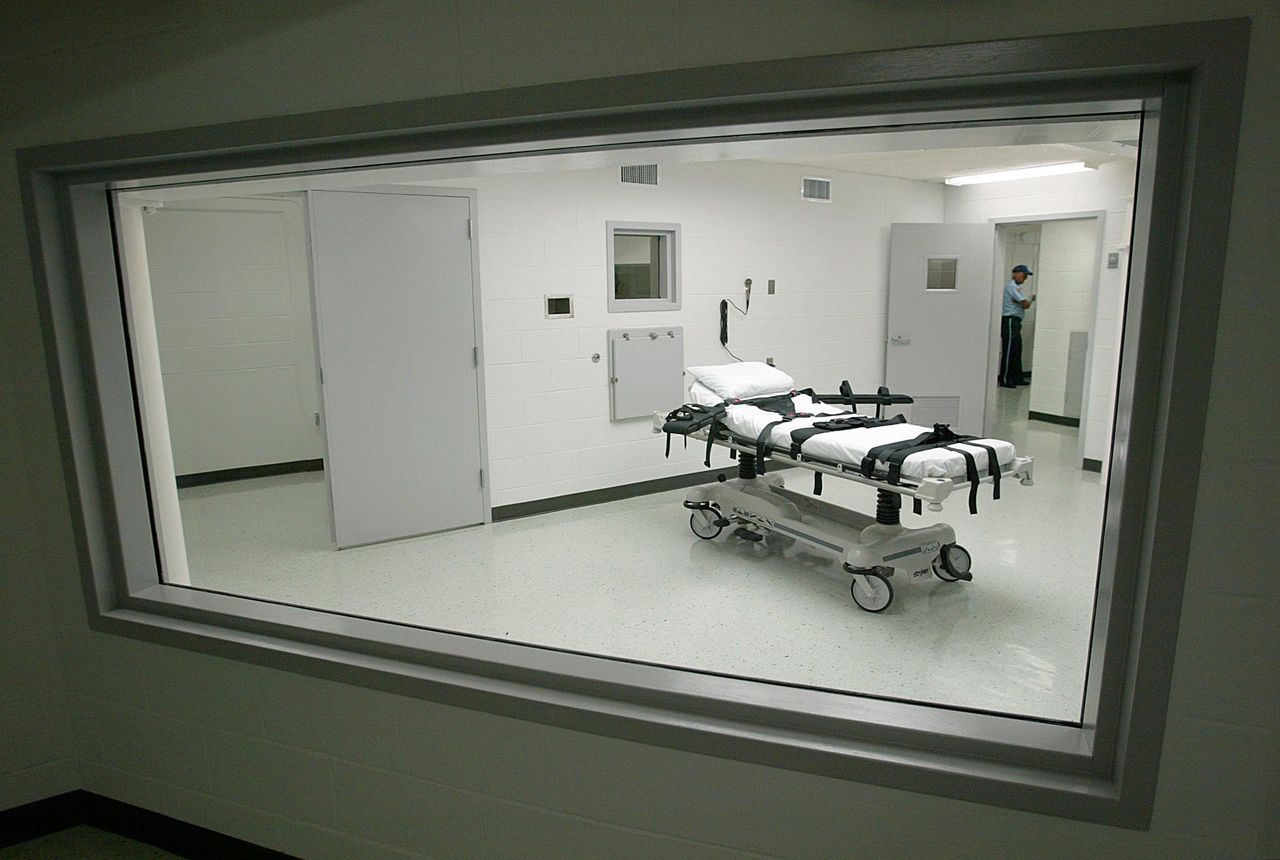Miller gets more time to respond to request for new execution date
The Alabama Supreme Court has granted death row inmate Alan Eugene Miller more time to respond to the state’s latest request to schedule his execution.
Miller has until Oct. 25 to respond to the state’s motion to set an execution date, which the state filed on Oct. 4. Before the court granted Miller’s request for an extension, his response was due on Oct. 12.
Miller was convicted of killing three men by gunfire at two businesses in Pelham in 1999. The victims, Michael Holdbrooks, Terry Lee Jarvis and Christopher Scott Yancey, were co-workers or former co-workers of Miller. A jury recommended the death penalty in 2000.
Miller was set to be executed by lethal injection on Sept. 22 at 6 p.m. A federal court injunction blocked the procedure until the U.S. Supreme Court vacated that injunction about 9 p.m. that day, clearing the way for the execution to proceed. But the state called off the execution about 11:30 p.m. because of a failure to tap Miller’s veins for the IV injection and a concern that the procedure could not be finished by midnight.
Miller has since filed a new complaint in his federal lawsuit seeking to block his execution. Miller claims he was poked with needles for more than 90 minutes during the unsuccessful attempt tap a vein.
Miller claims he chose to be executed by nitrogen hypoxia instead of lethal injection when death row inmates were allowed to make that choice in June 2018. The Legislature approved nitrogen hypoxia as an alternative to lethal injection in 2018, but the state has still not completed its development of how that will work. No state has ever used the method.
In September, U.S. District Judge R. Austin Huffaker Jr., held a hearing on Miller’s claim and determined it was “substantially likely” that Miller did choose nitrogen hypoxia, although the state said there was no record of that. Huffaker issued a preliminary injunction barring the state from executing Miller other than by nitrogen hypoxia. That is the order the Supreme Court later vacated on Sept. 22, allowing the attempted execution to proceed that night .
After the failed execution, Miller’s case is continuing in Huffaker’s court, with Miller filing the new complaint giving his account of the failed execution. On Thursday, the judge ordered the state to file its motions and responses to Miller’s new complaint by Oct. 21 at noon.
Huffaker ordered the parties to report to the court on any developments on the state’s request for a new execution date.
Alabama’s next scheduled execution is of Kenneth Eugene Smith, set for Nov. 17. Smith also has a federal lawsuit pending in Huffaker’s court. Smith alleges that Alabama’s lethal injection procedure poses an intolerable risk of torture, cruelty, or substantial pain in violation of the Eighth Amendment prohibition on cruel and unusual punishment, citing difficulties in the recent executions. Those include the execution of Joe Nathan James Jr., which took several hours to carry out, and the attempted execution of Smith.
Smith’s lawsuit also claims he did not have the information to make an informed decision about whether to choose nitrogen hypoxia in 2018.
The state has asked Huffaker to dismiss Smith’s lawsuit. Huffaker held a hearing on the case Thursday and has not ruled on the state’s motion to dismiss.
Smith was sent to death row in 1996 after his conviction in the beating and stabbing death of Elizabeth Dorlene Sennett, a 45-year-old grandmother and pastor’s wife who was killed in March 1988 in her home in Colbert County. Her husband paid to have her killed and committed suicide a week after her death. John Forrest Parker was executed by lethal injection in 2010 for his part in Sennett’s murder.
